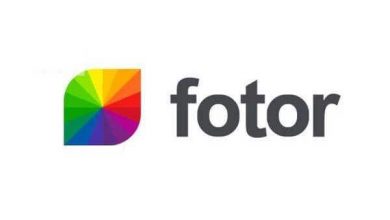Advantages of Ethereum in Healthcare
The term ‘Blockchain’ refers to a shared, permanent record of a transaction chain consisting of a block with cryptography keys (“hassles”) holding the blocks together. The keys or signatures will be held together with a network of nodes in common ledgers. With node has a complete chain copy that is constantly synced and kept up-to-date. Blockchain technology’s benefits consist of its tamper-resistant character, the decentralization of digital booklets, and the fact that the recorded transaction within the user community cannot be changed, which then shares the title. It’s often referred to as digital (DLT). You will get all the information and assistance from the healthcare bot, visit cannabis-millionaire.com.
Ethereum
Ethereum is also a blockchain-based on cryptocurrencies such as Bitcoin, based on a shared network but can enforce permitted Blockchain. Ethereum, like Bitcoin, uses the PoW protocol as well. It enables the build of decentralized applications. The most critical aspect of Ethereum is that it encourages a smart contract to be executed. It is considered the first blockchain architecture to incorporate intelligent contracts, so it is so common in smart decentralized applications based on contracts such as Healthcare. Ethereum and other generations are commonly referred to as the Blockchain 2.0 systems that have been introduced to enable the creation of decentralized applications utilizing smart contracts.
Applications of Ethereum in Healthcare
- Research
At the moment, electronic health records only enable medical information to be updated and shared automatically through an agency or network. This could be expanded if the information was arranged such that only information that was not PHI or personal information on the top level of the Blockchain was (PII).
This will allow organizations, with hundreds of thousands of patients, to access this broad range of data. The availability of such large quantities of data will significantly encourage clinical testing, safety and monitoring, and detection of adverse events.
- Switching of Patients
The same blockchain information will easily allow patients to access and exchange their data with different providers or organizations through a private key that can be shared. This could contribute to the interoperability and collaboration between different users of health information technology (HIT).
- Better Care
Blockchain can build a single system for stored, continuously updated heat records for a safe and quick recovery by approved users. By preventing miscommunication between various medical practitioners who care for the same patient, countless errors can be eliminated, a rapid diagnosis and procedures are made possible, and each patient’s care can be customized. The use of intelligent contracts and standard approval protocols will support seamless communication enormously.
- Safety
About 176 million infringements in the area of health records occurred between 2009 and 2017. The safe features of the Blockchain will contribute even better to protecting health information. It is safe from hacks and threats because each individual is provided with a key; they can lock the key using their passwords. Blockchains therefore will provide an unchanging health information audit trail.
- Remote Monitoring and Applications
With evolving technology, mobile health applications are now increasingly relevant. The data is transmitted at the other end to the medical staff and can also be used for home surveillance. EMRs are very safe and secure in ethereum technology. However, this field is particularly vulnerable to malware, especially root exploitation, which allows the hacker to access the patient’s private key.
- Secured and Tracked
Blockchain will assist with complete transparency in securing and trailing pharmaceutical supplies. It can also track the cost of labor and carbon emissions from the production of these supplies.
- Insurance
Because of its ability to present medical incidents as they exist, the Blockchain is unique to the processing of claims without the potential of manipulating the evidence for fraud purposes later.
- Outbreaks and Diseases
Blockchain’s specific capabilities can contribute to the reporting of diseases in real-time and explore disease trends that can help classify their origin and transmission.
- Genomics Safety
Genetic data theft is a major challenge, with many companies taking DNA sequences to the person. This could encourage healthy sales and avoid costly intermediaries. Ethereum is an example of the blockchain technology platform currently being used on a small scale. Blockchain services may be used to improve healthcare data with enhanced blockchain protection and synchronized systems.








